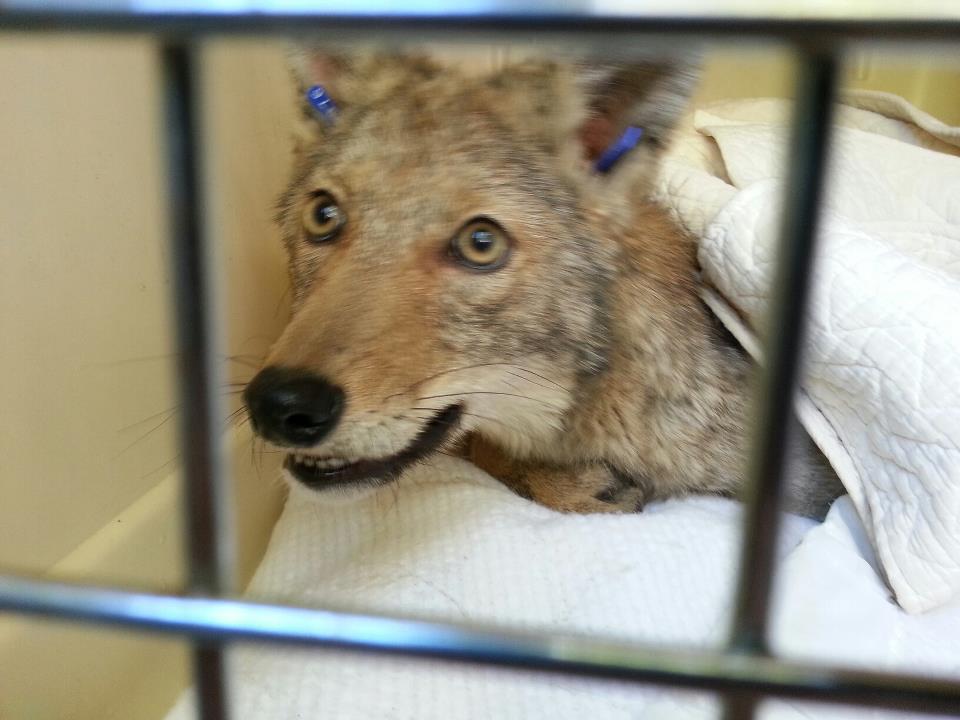
Young Coyote recovering from Mange at Wildlife Rehabilitation Center.
The use of herbicides, pesticides and fertilizers:
A new study by researchers at Case Western Reserve University and the Holden Arboretum suggests that changes we are making to the environment have the potential to make animals more susceptible to diseases and therefore may lead to population declines.
Their study suggests that human-made changes to the environment may be damaging the immune systems of a species of frog whose populations have drastically declined since the 1970s.
This research shows that land use–farming or treating lawns with herbicides, pesticides and fertilizers–can influence traits that protect animals from disease.
“By improving our understanding of the factors influencing immune defense traits capabilities, we are given the opportunity to make changes to our land management practices to better protect wildlife health” Dr Krynak said “and in all likelihood, our own health as a consequence.
The above post is reprinted from materials provided by Case Western Reserve University.
Journal Reference:
Katherine L. Krynak, David J. Burke, Michael F. Benard. Landscape and water characteristics correlate with immune defense traits across Blanchard’s cricket frog (Acris blanchardi) populations. Biological Conservation, 2016; 193: 153 DOI: 10.1016/j.biocon.2015.11.019
*** During this pandemic we are experiencing the close connection between disease in wildlife and our own species. We are all connected on this planet, and so our human behavior can cause animals to be more susceptible to disease, and this can lead to profound consequences we do not yet fully understand.
Rodenticides:
We are learning more and more about chemicals used on the landscape of farms and their effect on all the other life present there. And the picture has become very clear regarding the connection of using rodenticides…poisons to kill rodents….and the suppression of the immune systems of carnivores. It is they who hunt and eat the poisoned rodents. This has been observed in cougars, owls and other birds of prey, bobcats, coyotes and foxes.
Again, when their immune systems are compromised, they are much more susceptible to disease. One of these is mange, caused by millions of microscopic parasites that invade their skin and hair follicles. The parasites suck their blood causing severe anemia, destroy their hair follicles causing them to lose all their fur and violently scratch, leading to open weeping sores. With a severely suppressed immune system, members of these species die a slow and painful death.
As a farmer, why should you care about this?
For your farm to be healthy and productive, you want to have healthy wild ones living there with you. If for no other reason, it is to YOUR benefit. There is so much we do not know about the workings of our amazing planet and her marvelous Life…..SO
Walk gentle upon the Land……

